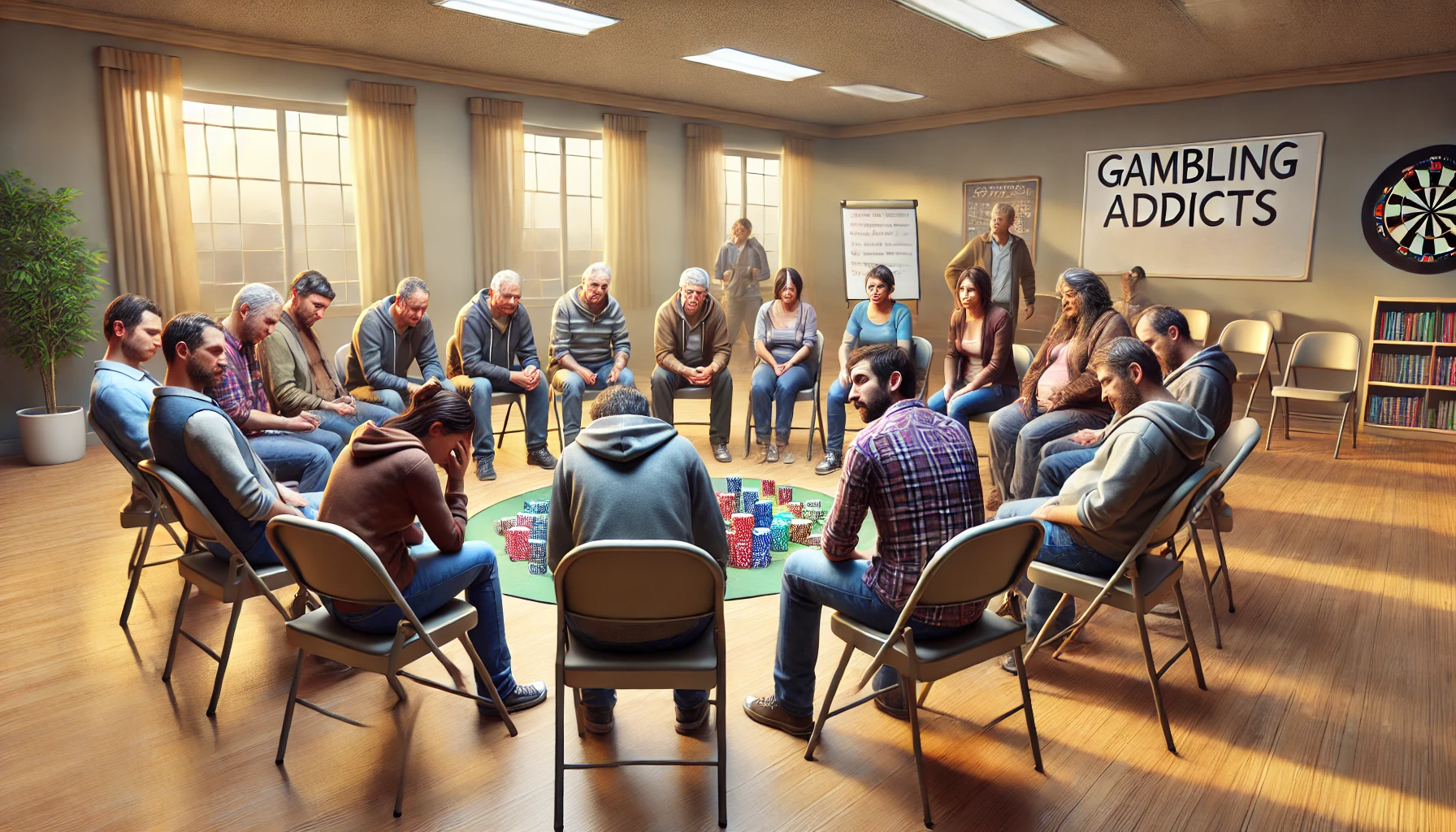Pathological gambling (also known as gambling disorder, compulsive gambling, and problem gambling) remains a significant issue in North America. It is a complex problem where addicted gamblers face challenges in various life areas, such as mental health, relationships, and financial stability. This article delves into the common problems faced by gambling addicts and explores potential solutions.
Understanding Gambling Addiction
Gambling addiction 먹튀사이트 is a behavioral disorder characterized by an uncontrollable urge to gamble despite the harmful consequences. Similar to substance abuse, it can cause significant personal and social distress.
Traits of a Gambling Addict
- Craving Restlessness: Constant thoughts of gambling, planning the next session, and reminiscing about past wins and losses.
- Chasing: The urge to place bigger bets to achieve the same thrill as the first gamble.
- Chasing Losses: Continuously gambling to recover lost money.
- Lies and Deception: Hiding the extent of gambling from family and friends.
- Loss of Control: Difficulty in stopping or reducing time spent gambling.
Common Concerns of Gambling Addicts
1. Financial Strain
Financial issues are a significant concern for gambling addicts, who often find themselves buried under mountains of debt.
Typical Financial Concerns
- Borrowing Money: Frequently borrowing to gamble or pay off gambling debts.
- Economic Struggles: Struggling to pay bills, buy groceries, or maintain housing.
- Savings Depletion: Draining savings and retirement accounts.
2. Relationship Issues
Gambling addiction can severely impact relationships with family, friends, and spouses due to the secretive and deceitful nature of the behavior.
Typical Relationship Concerns
- Trust Issues: Hiding gambling can lead to feelings of betrayal and broken trust.
- Neglect of Duties: Gambling often results in neglecting family responsibilities.
- Emotional Pain: Loved ones may experience stress, anxiety, and depression.
- Family Breakdown: Persistent gambling can lead to separation or divorce.
3. Mental Health Problems
Gambling addicts frequently struggle with mental health issues, such as depression and anxiety, exacerbated by the emotional rollercoaster of wins and losses.
Common Mental Health Concerns
- Depression: Financial and relational turmoil can lead to feelings of hopelessness and sadness.
- Anxiety: The stress of financial instability and damaged relationships can cause significant anxiety.
- Stress Overload: Inability to manage gambling consequences can lead to overwhelming stress.
- Risk of Suicide: Severe depression from gambling addiction can increase suicide risk.
4. Social Isolation
Gambling addicts often isolate themselves due to shame and discomfort, leading to a lack of social connections and increased reliance on gambling to cope.
Typical Social Concerns
- Avoidance of Social Activities: Refusal to attend events due to shame or the urge to gamble.
- Lost Friendships: Poor relationships can result in losing friends and social circles.
- Loneliness: Lack of social contact can lead to severe, long-term mental health problems.
5. Legal Issues
To finance their addiction, gamblers may resort to illegal activities, resulting in various legal problems.
Typical Legal Concerns
- Theft and Fraud: Engaging in theft, embezzlement, or fraud to fund gambling.
- Illegal Gambling: Participating in unlawful gambling activities.
- Legal Sanctions: Facing arrest, fines, and potential jail time.
Dealing With Compulsive Gamblers
Financial Management
Seek guidance from financial advisors or counselors to manage debt, create budgets, and consolidate finances.
Relationship Counseling
Family therapy and couples counseling can help rebuild trust and mend broken relationships through open communication.
Mental Health Support
Professional care options, such as therapy or counseling, are essential for addressing mental health issues related to gambling addiction. Cognitive-behavioral therapy (CBT) is particularly effective.
Social Support
Reconnect with friends and family and join support groups like Gamblers Anonymous to share experiences and coping strategies.
Legal Assistance
Seek advice and support from criminal defense attorneys to navigate the legal system and mitigate repercussions.
How to Overcome an Online Gambling Addiction
1. Acknowledge the Problem
Recognize and admit the existence of a gambling problem.
2. Seek Professional Help
Engage with therapists, counselors, and support groups for guidance and treatment.
3. Develop Healthy Habits
Replace gambling with healthier activities like exercise, reading, or hobbies.
4. Use Technology Wisely
Utilize gambling blockers and money management apps to moderate gambling activities.
5. Set Realistic Goals
Establish achievable recovery goals and celebrate small victories.
Conclusion
Gambling addiction is a severe problem affecting millions worldwide, causing financial strain, relationship issues, mental health problems, social isolation, and legal troubles. Addressing these issues with professional help, adopting healthy behaviors, and building strong social networks is essential. If you or a loved one is affected by gambling addiction, seeking support and considering available treatments is the first step toward recovery.



